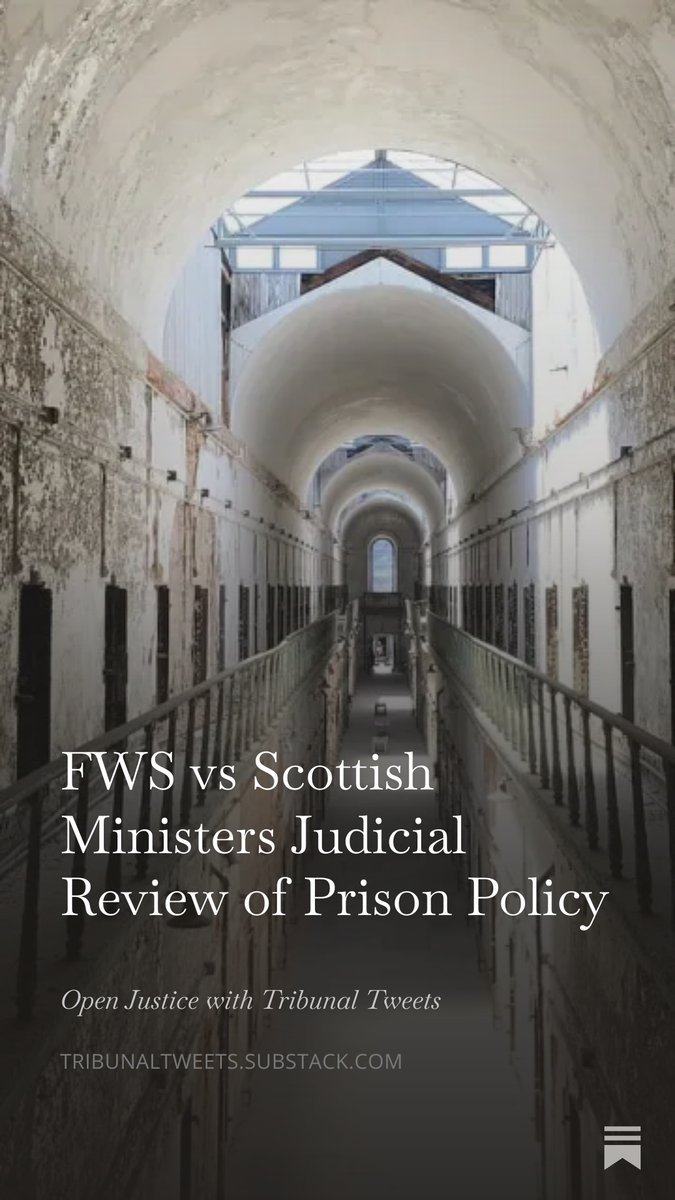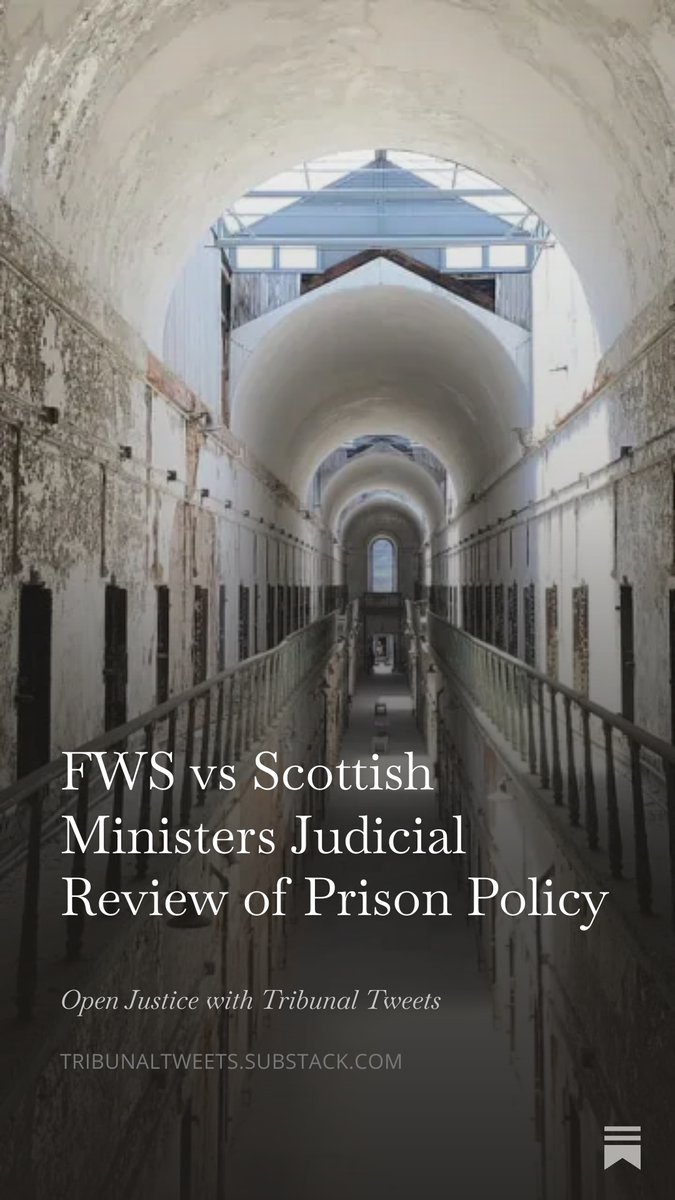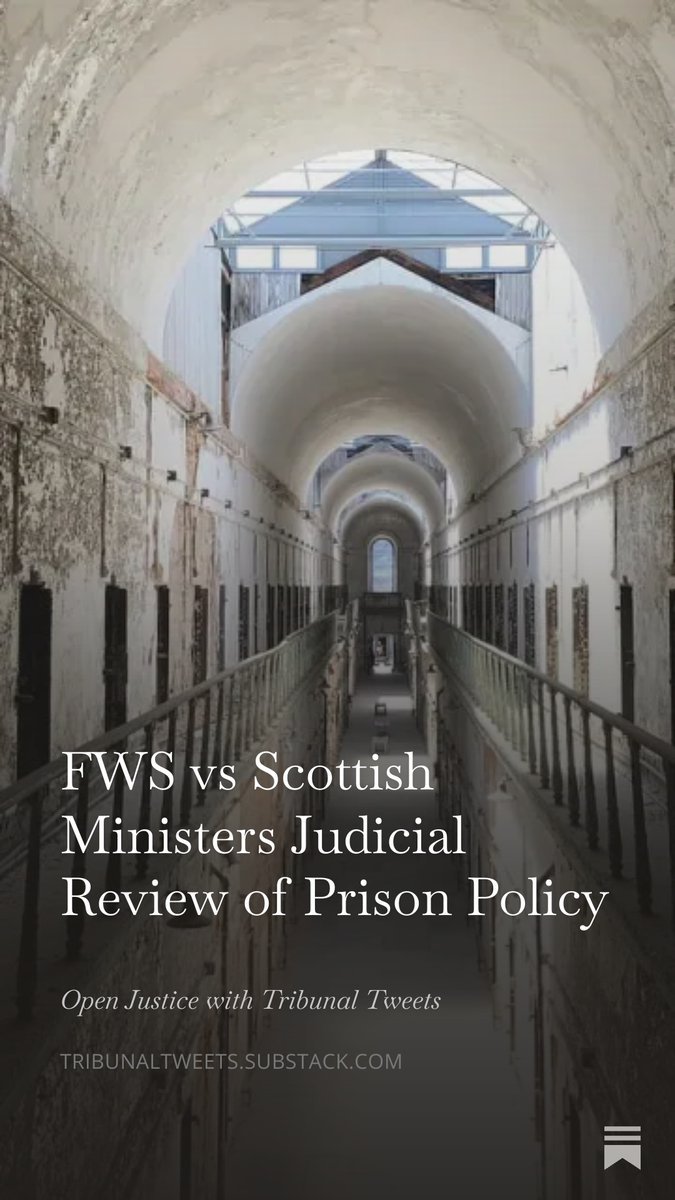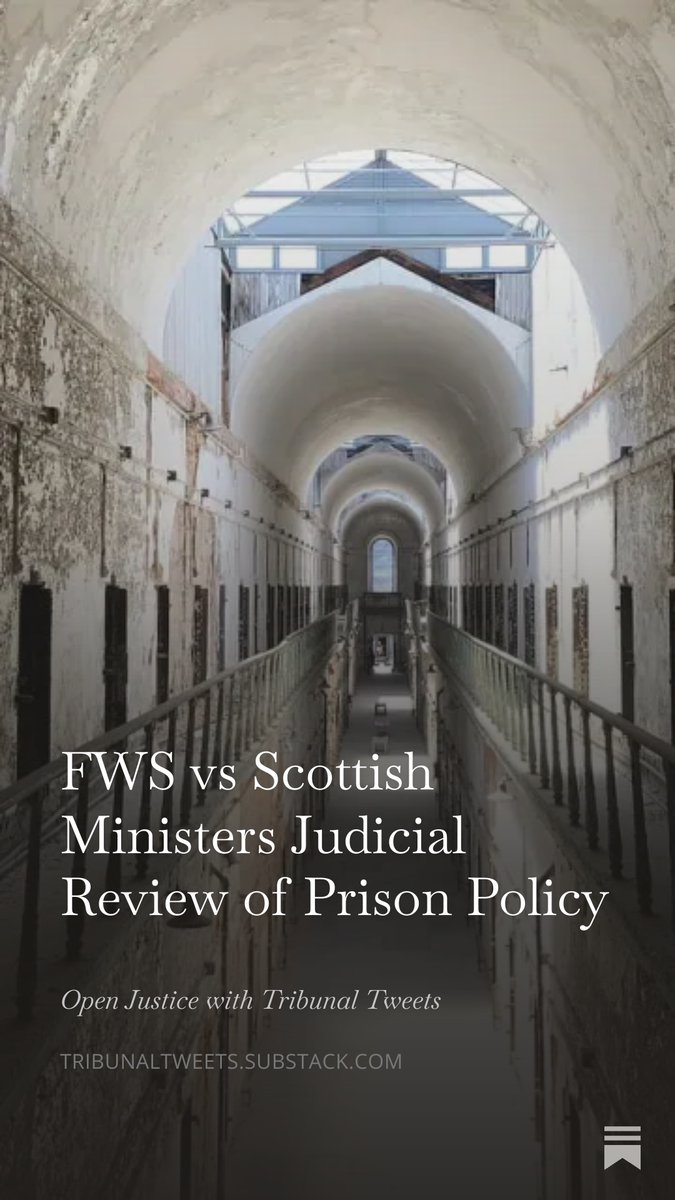Good morning. I (Jenny Smith, @GoodyActually) will be tweeting today from Bristol Civil Justice Centre on Raquel Rosario Sanchez ‘s case against @BristolUni in front of District Judge Alexander Ralton. Proceedings start at 10am.
@GoodyActually @BristolUni The case began yesterday, Monday, with a reading day for the court; there were no public sessions or witnesses that day.
@GoodyActually @BristolUni We are expecting the barristers to be Alice Coverley (AC) for Raquel Rosario Sanchez and Laura Johnson (LJ) for Bristol University.
Joan Smith @polblonde has written about the case unherd.com/2022/02/raquel…
Proceedings are due to begin at 10 am.
Apologies - I have the name of @8RosarioSanchez barrister slightly wrong; she is Alice de Coverley.
@8RosarioSanchez Apologies for the delay: I am still waiting for the remote access to the hearing to become active.
I'm afraid I am still waiting for the remote link to activate.
The Court has now started up the remote link, and has advised us that proceedings will begin in about ten minutes. Thank you for your patience so far
Proceedings begin.
Court summarises Covid regulations, alludes to remote proceedings (which is where this account is tweeting from today).
Court summarises Covid regulations, alludes to remote proceedings (which is where this account is tweeting from today).
Court points tweeters to the guidelines and requirement to be aware of potential for contempt of court: and reminds anyone present *in* court that they need explicit permission to turn on a mobile phone.
Court reminds listeners that this case is about the university's conduct; this is not any kind of "rights" case.
Barristers confirmed as Alice De Coverley for Raquel Rosaria Sanchez and Laura Johnson for Bristol University.
Case will last all this week plus Monday next week.
Case management discussions in progress: checking the "bundle" (full set of documentary evidence both parties have agreed and submitted to the court). Nobody outside the court has access to the "bundle"
AC: detailing some additional information to be included please: explains why this could not be obtained within normal time limit set by court: this evidence relates to financial loss RRS has suffered
AC: invites LJ to respond to this application
LJ: University does not object to this evidence but may ask questions re it later of witnesses
Court: Re application for late evidence re RRS claim for special damages: case was arranged on basis that all evidence should be filed well in advance. Important for fairness and efficiency of litigation.
Court: Notes LJ does not oppose admitting the evidence. Notes the claim is re additional rent and other housing costs claimed because (says claimant) PhD had to be extended. Notes that Univ and RRS have now agreed that extension.
Court: Notes this is not any major change to nature of overall claim court is addressing.
Court: lateness of application is however a serious breach of case management requirements.
Court: however this evidence is no disruption to the conduct of the case. Application allowed.
AC: second application: re a witness statement in the bundle: to have some parts kept private to the court.
Court: [some checking of document dates]
Court: [some checking of document dates]
AC: also that any questions in court re the matter she's applying to be treated as confidential, to be made in closed court session
[This section is hard to follow because by definition nobody is saying what they are talking about, because of the application being about confidentiality for it]
AC: repeats application: to keep 4 paragraphs of a witness statement confidential.
Court: difficult to give a decision in public court that cannot be put on public record?
AC: indeed, but can be done?
AC: indeed, but can be done?
Court: there is a difference between anonymising evidence - and not making evidence public at all
[LJ, AC and Judge to-ing and fro-ing about what exactly is being asked - again without being able to say very much about it - hard to follow]
AC: application she is making is not a change to nature of claim, is re extension of what is requested already in parts of the claim.
AC: is extension only in that defendant [university] already knew of events; this is not new to them
AC: application places no additional burden on defendant. Relates to aggravation of damage caused to applicant [RRS].
Court: Not aware of any case where applicant in an equalities case has tried to include defendant's choice of an expert witness as part of the matter of the claim
AC: accepts this is probably novel.
Court: Challenging an expert witness in court & even choice of does have history: but claiming damages on that basis?
Court: Challenging an expert witness in court & even choice of does have history: but claiming damages on that basis?
AC: [refers to authorities bundle - which is the file of rulings in previous cases that have been submitted for the court's consideration]
[Again - we don't see the bundles]
AC: argues a claimant *can* use a defendant's actions during litigation in claim for damages
LJ: A claimant must make claim at the outset of proceedings [refers to legal bundle]. Adding to it as one goes along is not how things should go.
LJ: if there *are* applications to amend made, it must be shown there is a reasonable chance of success in the change being requested.
LJ: this application is made VERY late; on morning of court and with notice to defendant only issued a few days earlier. Lateness means defendant has no chance to prepare to respond properly.
LJ: Claim is re defendant's initial choice of expert. Applicant has been aware of that choice since May 2021.
LJ: And all was thought agreed June 2021. Applicant is only now bringing up a problem with it.
LJ: Not identifying expert witness in question by name since he is not present.
LJ: Reiterates lateness of this application.
LJ: Reiterates lateness of this application.
LJ: Application also deals with a student known in proceedings as AA. Direction hearings earlier dealt with Q of anonymity of AA. Claimant objects to defendant involving AA but they had to, bcs of direction hearings, and anyway was known in November 2021
LJ: reiterates lateness of application again.
LJ: very clear that claimant has been aware of everything she is complaining of in this application for a long time, so lateness of application is not justifiable.
LJ: defendant is put at disadvantage bcs cannot now challenge any facts alleged because of lateness of application.
LJ: notably re contact with AA in dealing with his anonymity.
LJ: turning to "prospect of success". Yes there are cases on record where someone's conduct during proceedings including pre-trial has been complained of and has contributed to damages.
LJ: BUT not aware of any case where it's the choice of an expert witness that has been claimed.
Or of any case where anything similar to claim re contact with AA has been made.
Or of any case where anything similar to claim re contact with AA has been made.
LJ: None of this reaches the threshold the Court should expect. Fact that claimant was upset does not mean defendant was in the wrong.
LJ: application should be refused.
LJ: if it is not, then her own application [not yet heard tho judge will have seen it] falls away
LJ: if it is not, then her own application [not yet heard tho judge will have seen it] falls away
[AC/LJ/judge discussing the "prospect of success" aspect, much referring to guidelines on this]
LJ: If application is granted, Court will need to make directions to enable the defendant to respond to it.
Court: application is dated 5th Feb. Claimant requires court permission to amend the case in this way.
Court: defendant is entitled to know case it will have to respond to. So a claimant must set case out clearly in good time.
Court: defendant is entitled to know case it will have to respond to. So a claimant must set case out clearly in good time.
Court: And a court must be able to ensure correct case management in terms of disclosure and fairness.
Court: No party should be given a favourable procedural position over the other party.
Court: No party should be given a favourable procedural position over the other party.
Court: Claim originally made June 2020. There is nothing on the claim form re aggravated damages. Civil procedure rules explicitly say a claim re aggravated damages must be formally made in the particulars of claim.
Court: not appropriate to add aggravated damages to a schedule of claim for special damages, they are different class of claim.
Court: "Aggravated" damages don't get adverted to until 6th Jan 2022.
Court: "Aggravated" damages don't get adverted to until 6th Jan 2022.
[Phone rings. Court requests all phones turned off]
Court: Matter 1 = defendant's choice of expert. Notes that directions hearings earlier allowed for defendant to use an expert witness. Claimant alleges though that the specific choice of witness is a legal wrong.
Court: yes it is possible for a defendant to conduct a case in so odious a way as to contribute to a claim for aggravated damages.
But this current scenario is still very novel.
But this current scenario is still very novel.
Court: If there is a genuine argument about the choice of an expert to be instructed, that should be raised and put before court for case management purposes as soon as feasibly possible.
Court: Rejection of choice of expert should be brought before court for ruling on that point.
Court: if malice is alleged in the choice there is all the more reason for case management directions to be sought from court at early stage.
Court: This would be a complex Q for a court potentially requiring evidence from lawyers but also from the queried expert him/herself. A court would not impugn the standing/expertise of a potential expert witness without hearing from them.
Court: allowing claim for aggravated damages re this would be major disruption to this hearing.
Court: re Q of "any real prospect of success". Am very doubtful about this claim. If it had been properly prepared and case managed, might be different.
But putting in such an unparticularised claim at this stage - how can that possibly succeed? Does *not* have realistic prospect of success.
Court: Re matter 2. "Unnecessary involvement of AA in the case". Again: not clear claim. What does "unnecessary" mean?
Court: AA was put on notice by defendant that a management hearing would advert to them. It was an open court hearing. AA was already involved in the case.
Court: Again, this happened some time ago.
Court: And again, allowing application would be major disruption to this hearing.
Court: No hesitation in rejecting application.
Court: No hesitation in rejecting application.
Court: does this mean application for confidentiality / redaction falls?
AC: Will take instruction.
LJ: Would not object to withdrawing the statement altogether.
AC: Will take instruction.
LJ: Would not object to withdrawing the statement altogether.
[Court adjourns for 5 minutes so barristers can consult their clients on that proposal]
The hearing is resuming now.
AC: Agreed that statement in question can be withdrawn completely, so application for confidentiality for parts of it falls away.
LJ: one further matter before full hearing begins: agreed with AC already: a tweak to one sentence, court already aware.
[some discussion of timings: everyone seems confident time allotted will be adequate]
[some discussion of timings: everyone seems confident time allotted will be adequate]
Court now introducing case.
Introduces Miss Cusack as lay panellist [I think] as is usual in cases/tribunals related to the Equality Act.
Introduces Miss Cusack as lay panellist [I think] as is usual in cases/tribunals related to the Equality Act.
Court requests that legal referencing and case narrative be separated where possible, to assist lay member.
AC: suggest that court rises for lunch now rather than 1pm, rather than her doing 20 minutes and then breaking.
Court: agreed.
LJ: would like to use some of the 20 minutes for some minor points?
Court: agreed.
LJ: would like to use some of the 20 minutes for some minor points?
Court agrees: does AC object?
AC: no, but then she doesn't know yet what they are.
AC: no, but then she doesn't know yet what they are.
[I have no idea what that was all about but it was very short and the court has now risen for lunch, and will restart at 1.45 pm]
This afternoon's session will be tweeting on
https://twitter.com/tribunaltweets/status/1491043845341315077
@threadreaderapp please unroll
• • •
Missing some Tweet in this thread? You can try to
force a refresh










